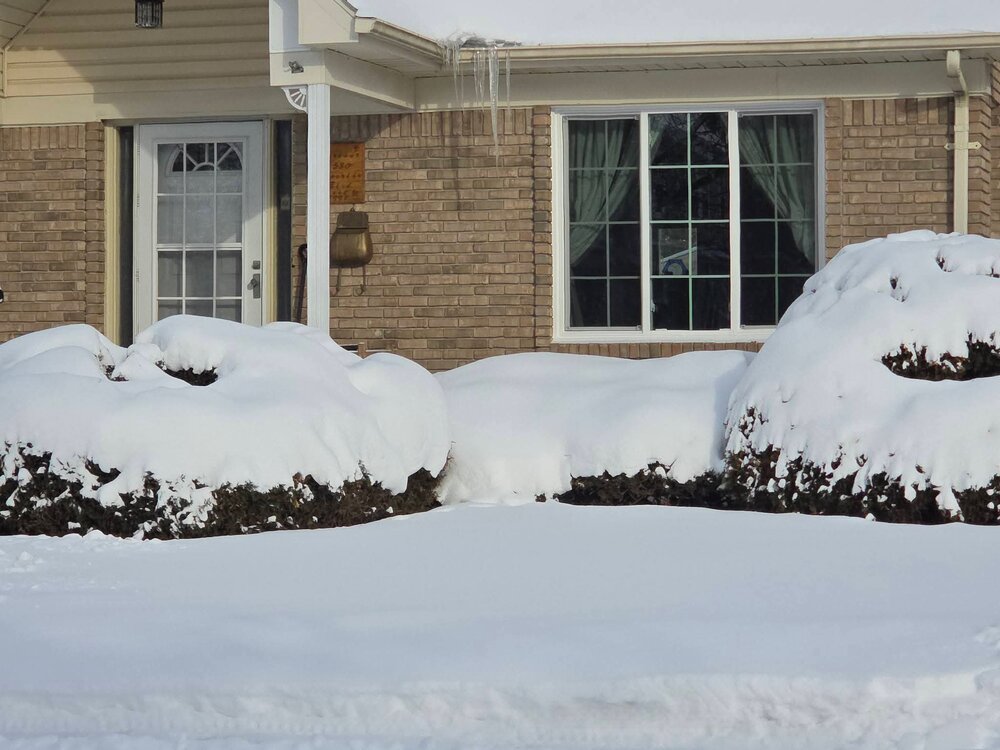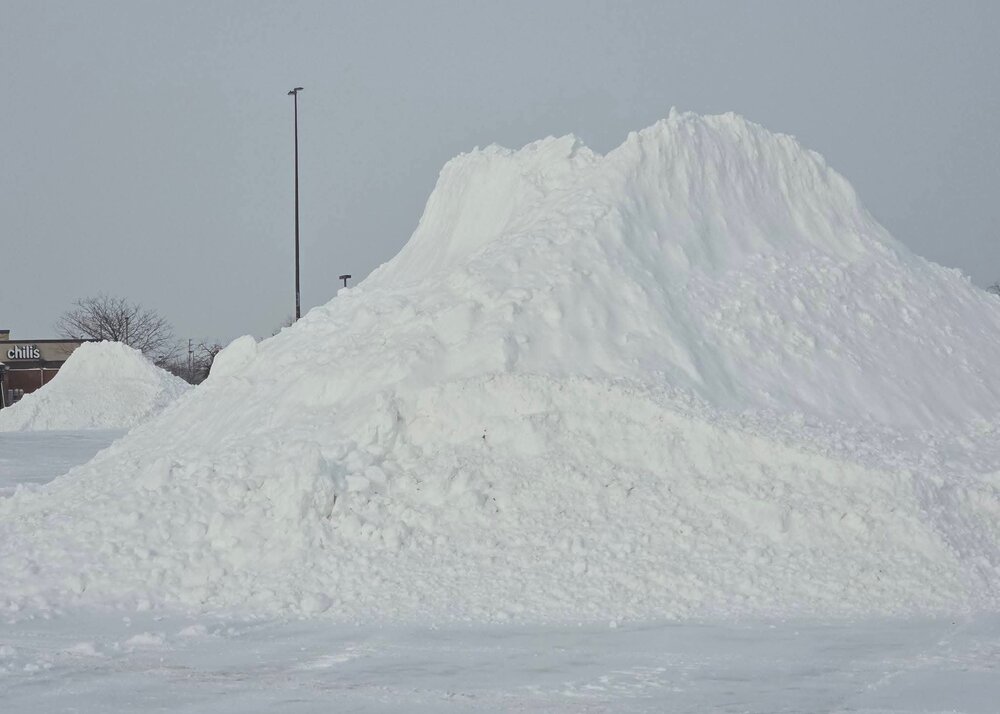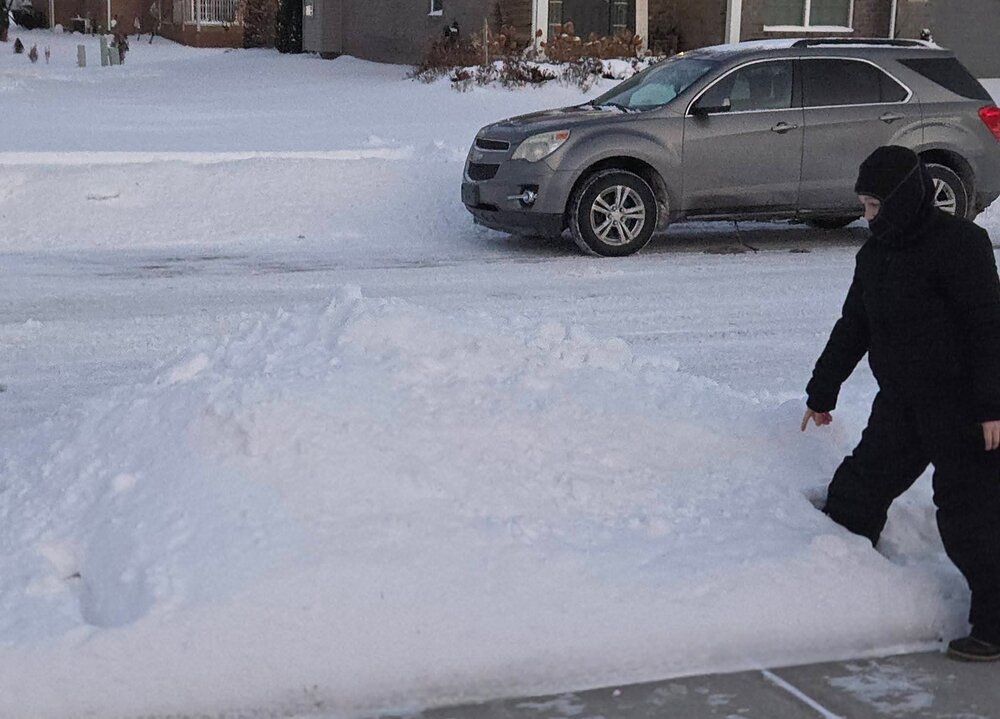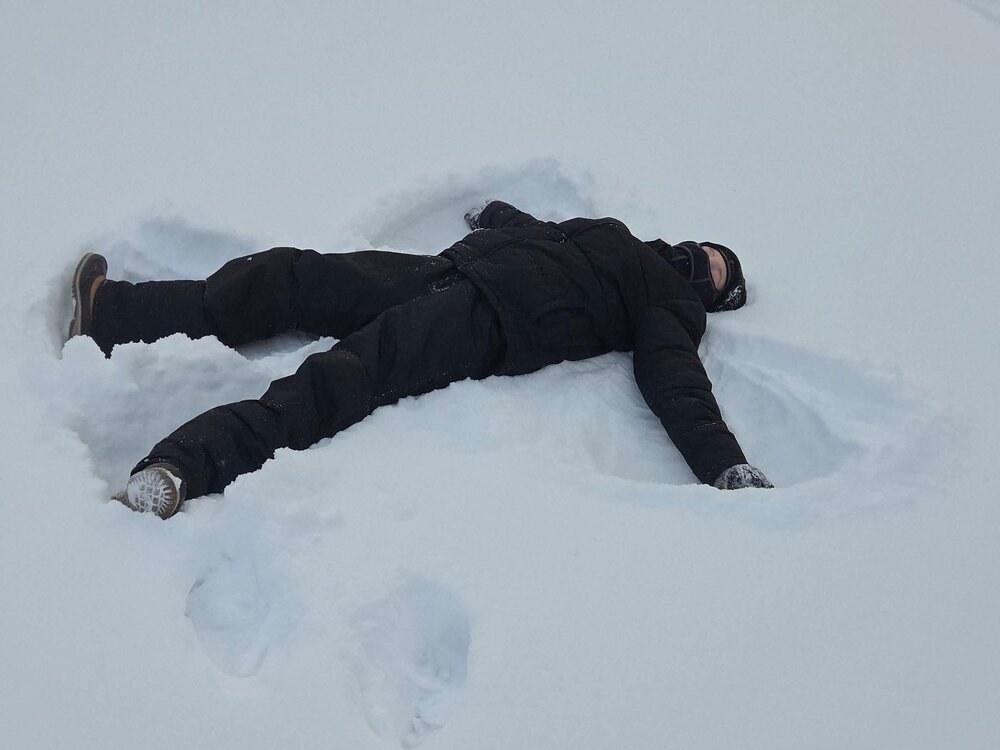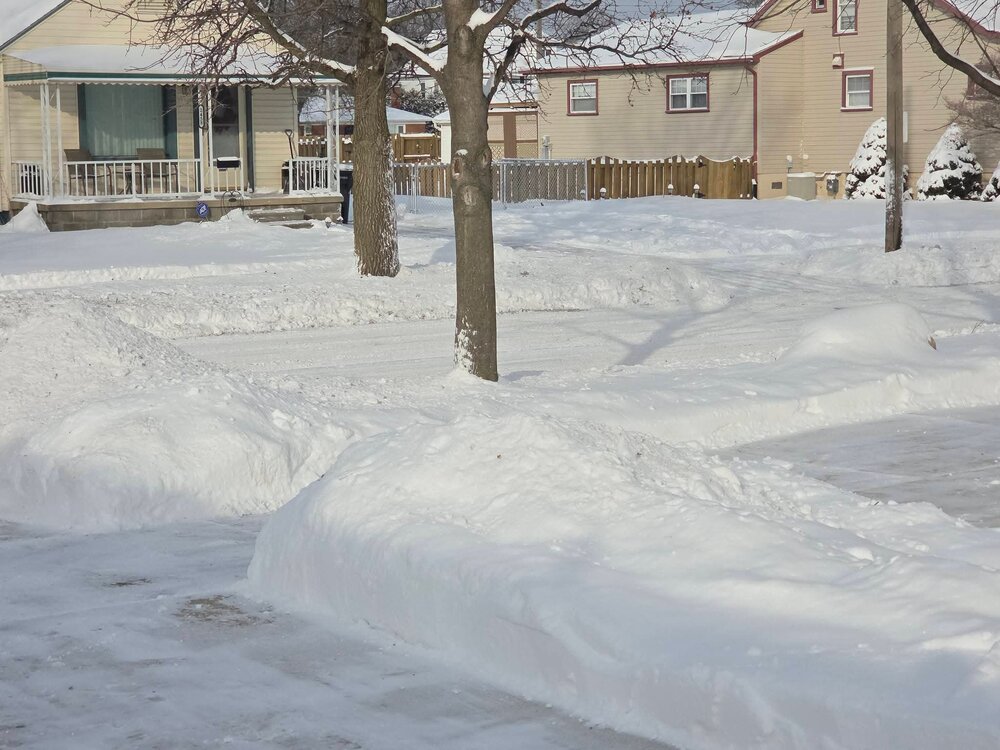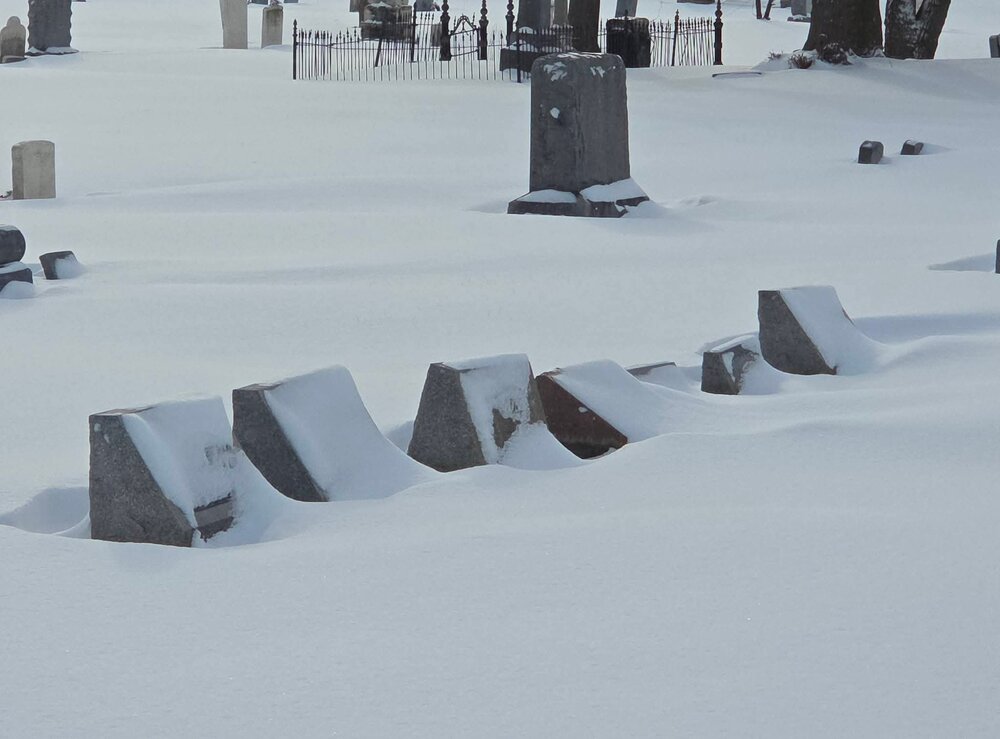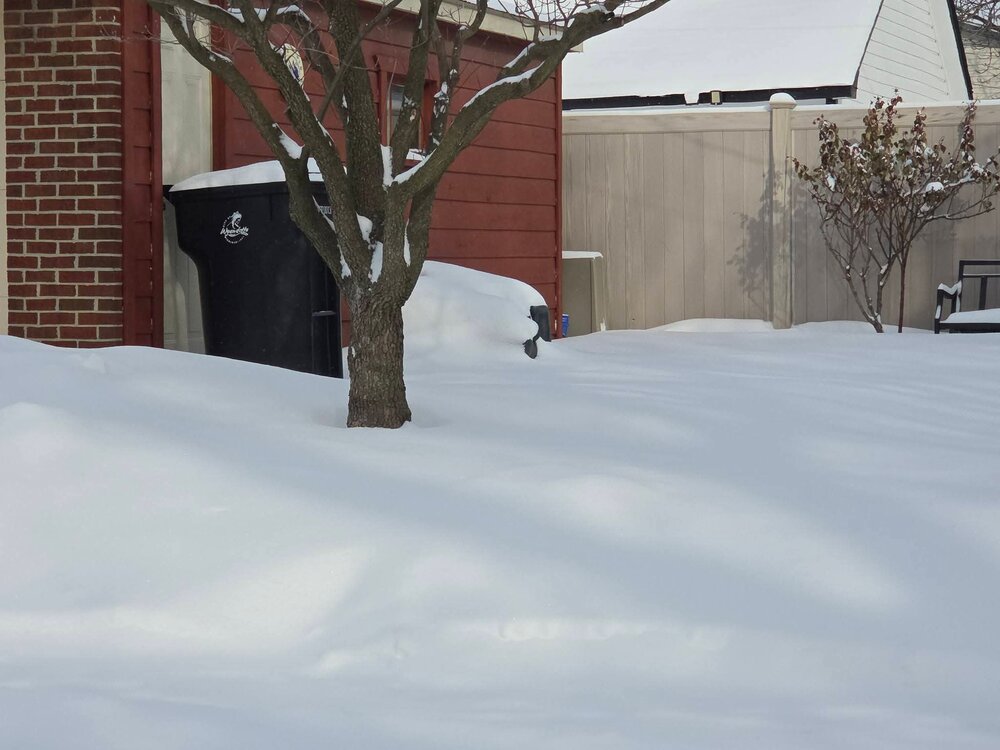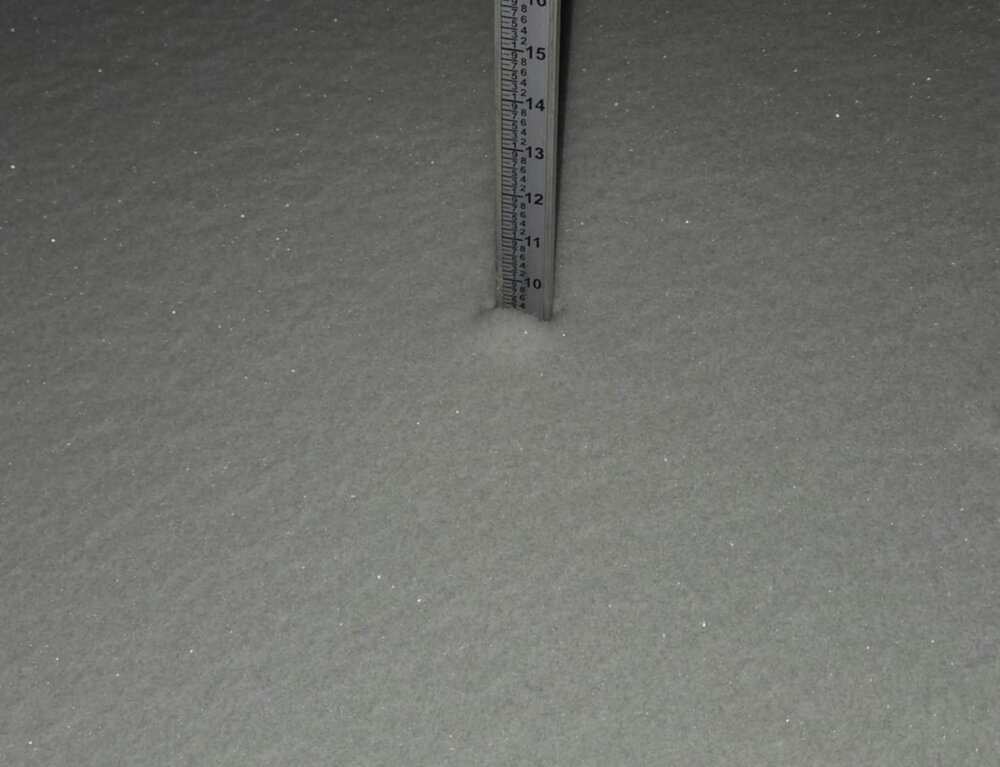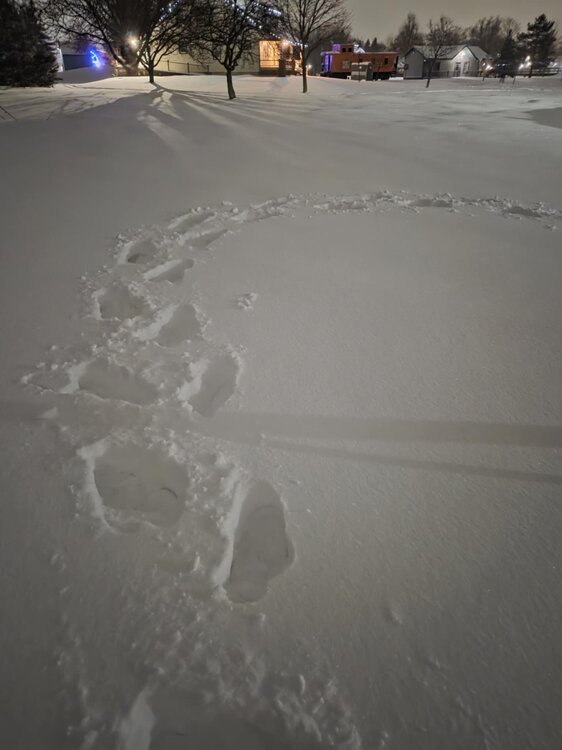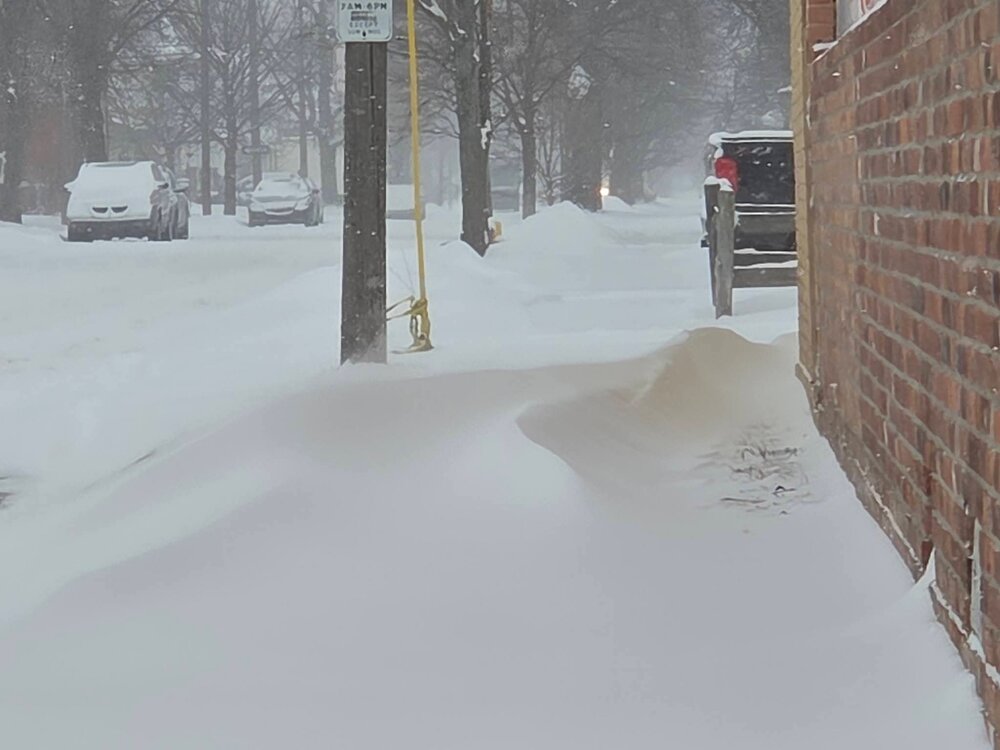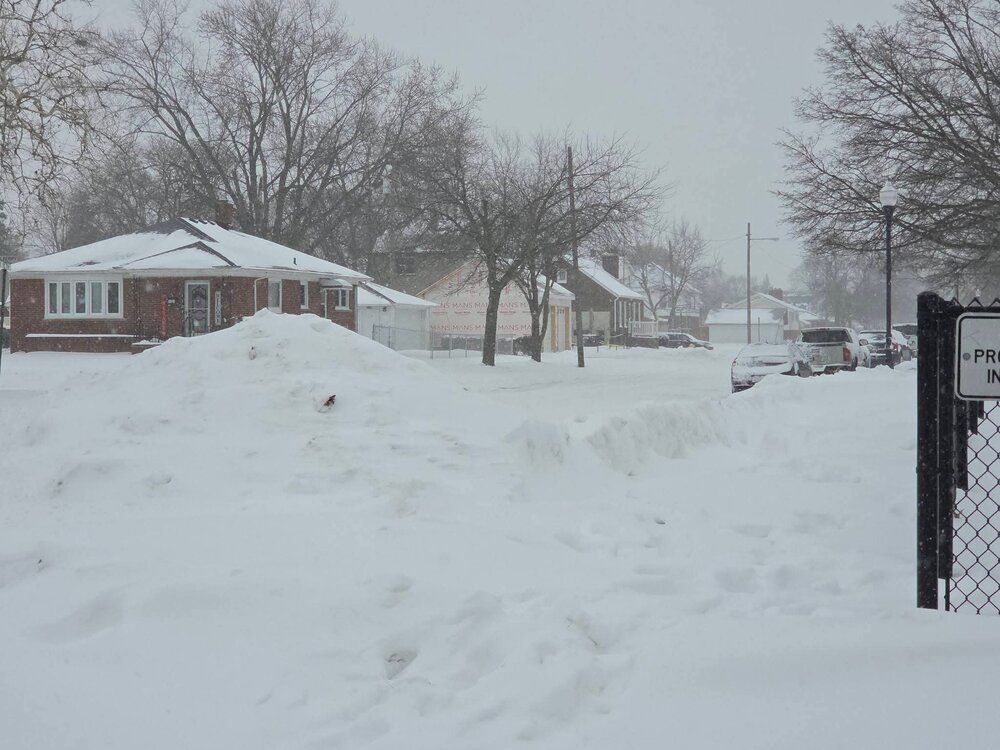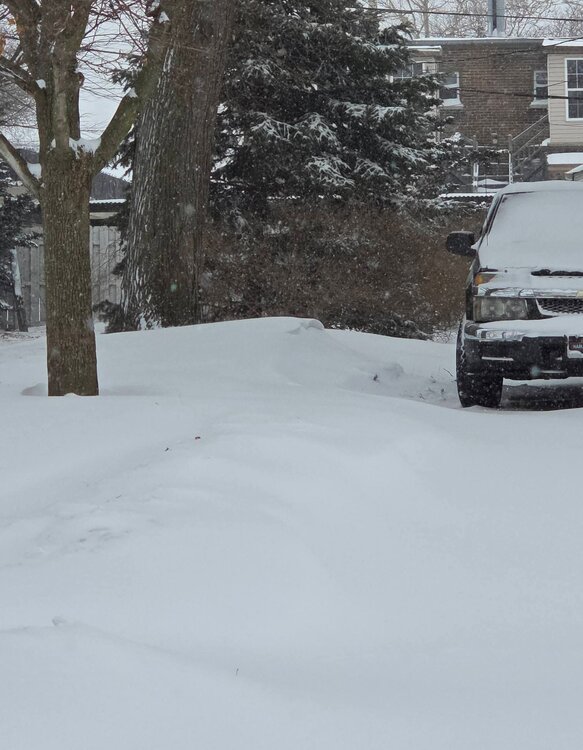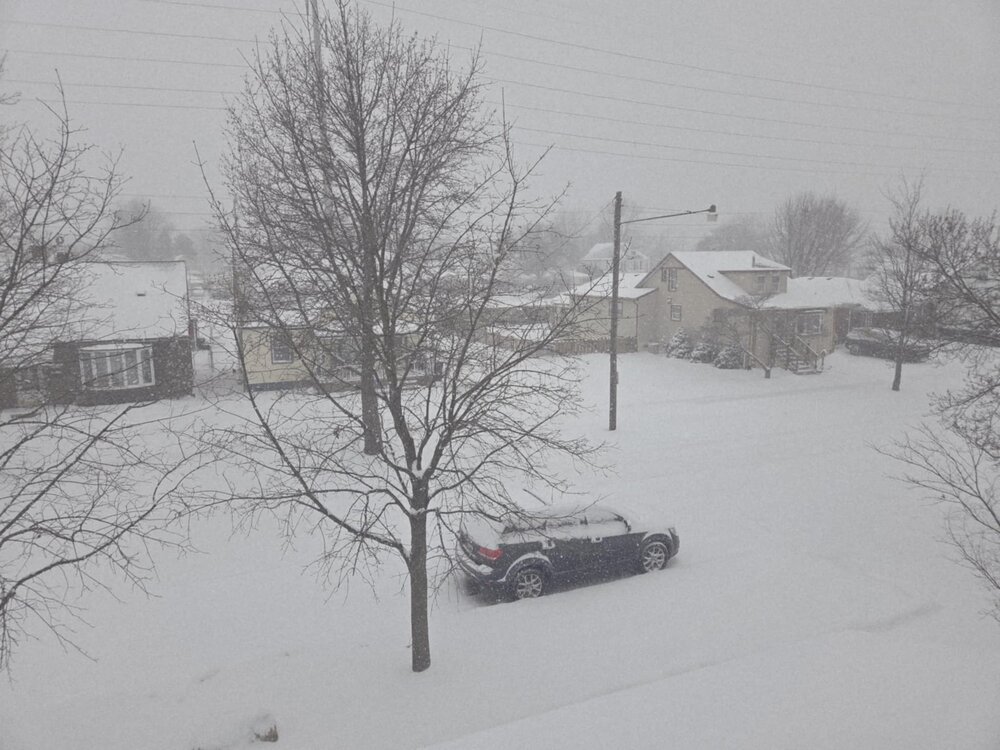-
Posts
17,998 -
Joined
-
Last visited
Content Type
Profiles
Blogs
Forums
American Weather
Media Demo
Store
Gallery
Everything posted by michsnowfreak
-
Yeah the drumbeat goes on. Frigid week ahead.
-

1/24-1/25 Major Winter Storm - S. IL, IN, and OH
michsnowfreak replied to A-L-E-K's topic in Lakes/Ohio Valley
Lmao you complained about double digit snowstorms all the time back in the 2000s/10s. You did in 2014, even with 2 feet on the ground because with all the storms we had no individual fall was over 12". The very next year, when Detroit got nearly 17" of snow on Feb 1/2, 2015 you found plenty of critique saying it was boring and took 24 hours to achieve (despite hours of visibility below 1/4 mile). Our last double digit storm (Feb 2021) you dont remember (even though you were in FL) so I guess it didnt happen. In fact you ghost this board all year except in winter when youre in FL so you can troll/repeat how no 20" storms are hitting SE MI. Me posting how many 20"+ storms in every first order station in the entire non-lake belt midwest is not "bs", its actual weather data. And how extremely lucky that you've experienced several! Your job just happened to place you in a town the exact day a 20" storm hit. That's lotto lucky. As for the tundra. Theres deep snow in place and mountains of snow everywhere, so i dont mind it in the least. Perfect for winter rec. -

Winter 2025-26 Medium/Long Range Discussion
michsnowfreak replied to michsnowfreak's topic in Lakes/Ohio Valley
Ive noticed the clipper pattern showing up on LR models. -

1/24-1/25 Major Winter Storm - S. IL, IN, and OH
michsnowfreak replied to A-L-E-K's topic in Lakes/Ohio Valley
Not to mention, we get plenty of big snowstorms. He is talking 20"+. Which any amount of data you can find will tell you that it is EXTREMELY rare in this region. Dubuque, Moline, Cedar Rapids, Rockford, Fort Wayne, Indianapolis, Cincinnati, Dayton, LaCrosse, Bismark, Peoria, Springfield, St Louis, Madison - not a single 20" storm in their climate record. Detroit has 1, 1886 Flint has 1, 1967 Des Moines has 1, 1942 Chicago has 3, most recent 2011 Columbus has 1, 2008 Lansing has 1, 1967 Toledo has 1, 1900 Cleveland has 1, 1913 Kansas City has 1, 1912 Milwaukee has 1, 1974 Minneapolis has 2, most recent 1991 St Cloud has 3, most recent 1965 -

1/24-1/25 Major Winter Storm - S. IL, IN, and OH
michsnowfreak replied to A-L-E-K's topic in Lakes/Ohio Valley
Its also ok to live in a state known for winter and to enjoy winter without being lectured from someone who does not reside in winter and does not like winter. And as I get older I use the snowblower more and more. Love shoveling but only when its not too heavy. My piles are no more special than others anymore. -

1/24-1/25 Major Winter Storm - S. IL, IN, and OH
michsnowfreak replied to A-L-E-K's topic in Lakes/Ohio Valley
You dont even live here in winter. You essentially hate winter. This storm was a great storm for the central ohio crew but it was short of 20" so if it was here you'd be complaining. I know, because you had many critiques when Detroit had a 16.7" storm in 2015. -

2025-2026 ENSO
michsnowfreak replied to 40/70 Benchmark's topic in Weather Forecasting and Discussion
34.1" here to date. Though there have been no huge storms here, snowfall has been very frequent. Plow/salt contractors have been on overtime every week since Thanksgiving except for 2 (Christmas week and 2nd week of January). Daily wind chills to -20F, a deep blanket of snow, mountains of powder everywhere, THIS is how the dead of winter should be! It's what the normies call "an old fashioned winter". 2025-26 will be the 2nd colder than avg winter in a row and is on pace to be the snowiest since 2017-18. -

Winter 2025-26 Medium/Long Range Discussion
michsnowfreak replied to michsnowfreak's topic in Lakes/Ohio Valley
Thats just crazy. Lol and Detroit sits on a salt mine. Plow/Salt contractors in SE MI have been on overtime every week since Thanksgiving with exception of 2 weeks (Christmas week and 2nd week of January). -
Went sledding/snow playing with my nephew. He was already out all day with friends then wanted to go sledding. Then I take him home and he wants to make an igloo out of the snowbank in the driveway. The kid could live in snow day and night. I have found @beavis1729 match!
-

Winter 2025-26 Medium/Long Range Discussion
michsnowfreak replied to michsnowfreak's topic in Lakes/Ohio Valley
Detroit must take the case for salting lol. I mean theres been multiple plows too, but i heard some contractors are low on salt already. -

1/24-1/25 Major Winter Storm - S. IL, IN, and OH
michsnowfreak replied to A-L-E-K's topic in Lakes/Ohio Valley
So far this season i have had 34.1" which is about 10" above avg to date. Nov- 5.7" Dec- 11.6" Jan- 16.8" -

1/24-1/25 Major Winter Storm - S. IL, IN, and OH
michsnowfreak replied to A-L-E-K's topic in Lakes/Ohio Valley
It was epic in much of MI but not SE MI. Detroit literally saw twice as much snow Feb 1/2, 2015 than they did Jan 26, 1978. 1974 was way more epic. 1978 was a great storm but way overblown here. -

1/24-1/25 Major Winter Storm - S. IL, IN, and OH
michsnowfreak replied to A-L-E-K's topic in Lakes/Ohio Valley
-

1/24-1/25 Major Winter Storm - S. IL, IN, and OH
michsnowfreak replied to A-L-E-K's topic in Lakes/Ohio Valley
This is why I don't like quoting stats i verify them. The 12.4 was daytons CALENDAR day record. They had 1 storm of 18+ (18.3 in 1910) -

1/24-1/25 Major Winter Storm - S. IL, IN, and OH
michsnowfreak replied to A-L-E-K's topic in Lakes/Ohio Valley
Its honestly unreal. Its one thing to want something. I want a million dollars, I want to lose weight, etc. But its another to have an expectation that's totally against to your climate. Its almost beyond comprehension to me that a "big dog" is a winter event, and some would supposedly be fine going years without winter knowing that one year soon theyre bound to get that big dog. We dont/can't that in Michigan. We need winter annually. Its like telling your boss, no thank you i don't want my biweekly paycheck. Ill just wait til next year when we get the big profit sharing bonus. -

1/24-1/25 Major Winter Storm - S. IL, IN, and OH
michsnowfreak replied to A-L-E-K's topic in Lakes/Ohio Valley
Exactly. Plus the existing snowpack was already well compacted and drifted over. None of this watching it settle by inches daily as you do with fluffy snow. Theres about 1 inch of water in our 9" powder snowpack. Its a skier or snowboarders dream base. -

1/24-1/25 Major Winter Storm - S. IL, IN, and OH
michsnowfreak replied to A-L-E-K's topic in Lakes/Ohio Valley
Boston has bot had 10 but they've had several 20+ since 2000. More than here lol. And "everyone else" doesn't get big dogs outside the east coast. For comparison Daytons 12.4" with this storm was their all time 24 hr ecord. Detroit saw 16.7" on Feb 1/2, 2015. We got plenty of 10-12" storms in the golden era of the 2000s-10s with several areas hitting 14-16" in some storms. Don't be lowering your big dog standards just because OH/IN got more this time lol. We don't have the ocean. Thats not gonna change. And why sorry he had to move? Maybe he likes more frequent snowfall? Or even more so maybe he likes where he lives and didnt base on weather. From one 4 seasons climate to another is really not a huge move. Its these people that move to AZ to get burned alive that make me scratch my head. It wasnt so much dry air with this storm, it was strictly ratios. A red flag should've been how much of the mid Atlantic and east coast turned to sleet with temps in the teens. Just because its cold doesn't mean 20-1 ratios. Im not sticking up for the models as they've been awful recently, but it was actually a well forecast storm qpf wise and placement wise. Remember, Kutchera is not a model forecast, its an algorithm incorporated into the models to estimate snowfall and it has disappointment millions of weenie hearts over the years. -

1/24-1/25 Major Winter Storm - S. IL, IN, and OH
michsnowfreak replied to A-L-E-K's topic in Lakes/Ohio Valley
Wait what did I miss? You aren't in MI anymore? -

1/24-1/25 Major Winter Storm - S. IL, IN, and OH
michsnowfreak replied to A-L-E-K's topic in Lakes/Ohio Valley
I forgot youre in TX . This winter is certainly what the old timers would call "an old fashioned winter" but really need to see one of those ORD-DTW-YYZ storms to ice the cake. Hopefully you can move back to Toronto or at least the north someday! The 5.2" storm total brings me to 34.0" on the season and the 4.9" at DTW brings them to 33.1", which is 11" above avg to date. We are now exactly at the climo midpoint of the snow season. -

1/24-1/25 Major Winter Storm - S. IL, IN, and OH
michsnowfreak replied to A-L-E-K's topic in Lakes/Ohio Valley
Haven't seen you post in a while, welcome back! Steve's a good guy hes just very big dog focused and also tires of our long winters and frequent snow (getting old i guess lol). Though it didnt quite happen, its astounding that Boston had the chance to get more snow yesterday in one storm than they did in the entire 2 season stretch of 2022-23 + 2023-24. Central Mass is much safer than the coast, but the reality is the east coast is feast/famine and they were overdue for one of their monster snows. You can only avoid climo so long. One of the frequent posters there (40/70) hasn't had an avg snow season since 2018. -

1/24-1/25 Major Winter Storm - S. IL, IN, and OH
michsnowfreak replied to A-L-E-K's topic in Lakes/Ohio Valley
I remember Toronto had so many down winters, even when the rest of us were getting hit good, that @Snowstorms thought Toronto just couldn't get good winters anymore. The last few years have emphatically proved that wrong. -

1/24-1/25 Major Winter Storm - S. IL, IN, and OH
michsnowfreak replied to A-L-E-K's topic in Lakes/Ohio Valley
We finished with 5.2". There is 9-10" on the ground. The snow was not fluffy it was like 10-12:1 arctic powder so it had weight to it. With the existing snowpack and snowbanks there are mountains of powder everywhere...its so cold no salt is being used. It looks like pretty much the same as if it was a foot snowstorm lol. It looks fantastic outside. DTW finished with 4.9" snow on 0.41" liquid so the liquid was actually MORE than the model average forecast of 0.35". It was just pure sugar. Monroe had 6.5". Pretty much 2-4" NW of an Ann Arbor to Livonia to Port Huron line with less than 2" by the time you get to Flint. From Adrian to DTW to Mt Clemens and southeast 4-5" with 5-7" in Monroe Co. So basically...model qpf was fine...once again the assumption of cold equals fluff did not work out. It is very rare to get 20-1 ratios in a synoptic system....Lake effect, that's when you can easily get north of 25-1 ratios. -

1/24-1/25 Major Winter Storm - S. IL, IN, and OH
michsnowfreak replied to A-L-E-K's topic in Lakes/Ohio Valley
Its fantastic outside. I lol when I hear something like "the east coast wins again". They've actually been in a historic multi year snow drought in many places so whether you believe it or not, they are long overdue for a storm like this. This powder is not high ratio so the depth will not settle much. Deep winter. -

1/24-1/25 Major Winter Storm - S. IL, IN, and OH
michsnowfreak replied to A-L-E-K's topic in Lakes/Ohio Valley
-

1/24-1/25 Major Winter Storm - S. IL, IN, and OH
michsnowfreak replied to A-L-E-K's topic in Lakes/Ohio Valley





